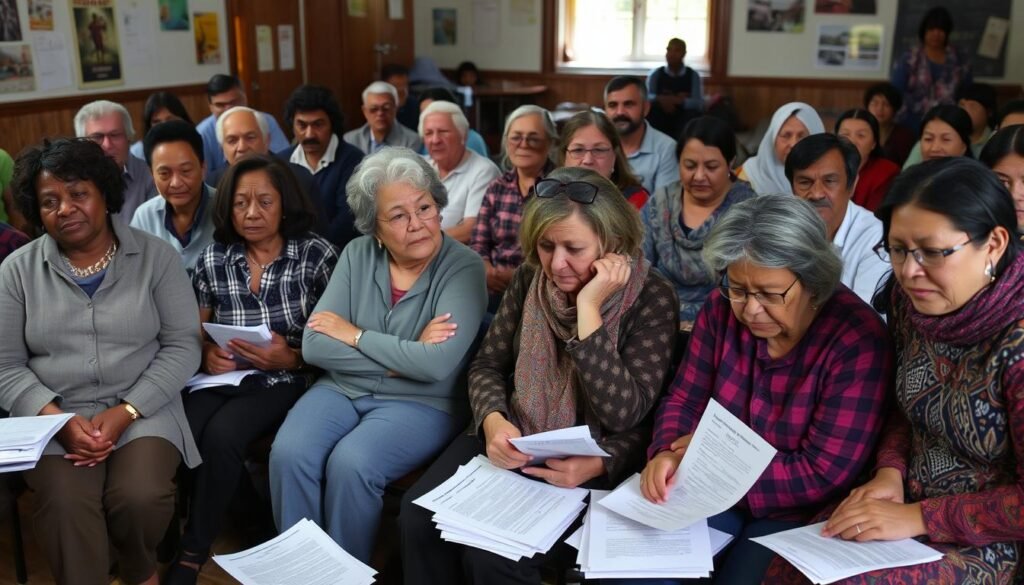Centrelink’s medical certificate exemption period has grown from 13 weeks to 24 months. This change starts on January 1, 2025. It affects major income support programs in Australia.
These programs include JobSeeker, Youth Allowance, and Parenting Payment Single. Special Benefits for Nominated Visa Holders are also affected. This new policy aims to support Australians facing health-related job barriers.
Eligible job seekers can now receive payments for up to 24 months. This applies during illness or injury. The government recognises the importance of recovery without job-seeking pressure.
Major Highlights
- Centrelink medical certificate exemption period extended from 13 weeks to 24 months
- Policy change affects major income support programs like JobSeeker, Youth Allowance, and Parenting Payment Single
- Eligible job seekers can receive payments for up to 24 months during illness or injury
- Increased flexibility and compassion for Australians facing health-related employment barriers
- Allows recipients to focus on recovery without immediate job-seeking pressures
Overview of New Centrelink Medical Exemption Policy
Centrelink is changing its medical exemption policy to help Australians with health issues. From January 1, 2025, the maximum exemption period will increase to 24 months. This applies to those who can’t work or do activities due to illness or injury.
Key Changes from January 2025
- Extended medical exemption period from 13 weeks to 24 months
- Applies to JobSeeker, Youth Allowance for job seekers, Parenting Payment Single, and Special Benefits for Nominated Visa Holders
- Services Australia will assess each case to determine the appropriate exemption period
Affected Payment Types and Programs
The new policy changes will affect these Centrelink payment types and programs:
- JobSeeker
- Youth Allowance for job seekers
- Parenting Payment Single (when the youngest child turns 6)
- Special Benefits for Nominated Visa Holders
Implementation Timeline Details
The policy updates will start on January 1, 2025. They show a more flexible approach to supporting Centrelink recipients. This includes impairment allowances, chronic illness support, and medical condition waivers.
“These changes will provide much-needed relief and flexibility for Australians facing serious health challenges, allowing them to focus on their recovery and wellbeing.”
Impact on Income Support Recipients and Payment Requirements
Centrelink’s new medical exemption policy offers more flexibility for income support recipients with health issues. Recipients must still agree to a Job Plan and attend meetings when possible. Recent increases in social security payments aim to balance health needs with job obligations.
For single individuals over 22 without children, JobSeeker payments have risen to $778 fortnightly. The Disability Support Pension and Aged Pension rates have increased to $900.80 fortnightly. These changes support Australians facing health and financial challenges.
- Approximately 62% of Newstart Allowance recipients had been in continuous receipt of the payment for one year or more, and 46% had been in continuous receipt of payment for two years or more.
- The income test allows a person to earn some employment income while receiving an income support payment, with pension payments generally tapering out more slowly than allowance payments.
- Work Bonus allows Age Pension recipients to receive employment income up to $250 per fortnight without its being assessed as income under the pension income test.
The new policy balances health needs with job-seeking obligations. It supports those with incapacity exemptions and long-term illness assistance. The goal is to help recipients access support while gradually returning to work.

Medical Certificate Documentation and Assessment Process
The Centrelink medical exemption process needs careful paperwork and understanding of assessment criteria. Job seekers must provide detailed medical evidence for their condition. This supports their claim for Centrelink illness evidence or medical condition concessions.
Required Medical Evidence and Documentation
The medical certificate for Centrelink must clearly outline these details:
- A comprehensive description of the medical condition or disability
- The expected duration of the condition and its impact on the individual’s work capacity
- Any work limitations or restrictions imposed by the medical condition
Assessment Criteria for Exemptions
Centrelink’s assessment of centrelink sick leave exemption requests looks at key factors:
- The severity and projected recovery timeline of the medical condition
- The impact of the condition on the individual’s ability to meet their mutual obligation requirements
- The feasibility of alternative work arrangements or modifications to accommodate the medical condition
Processing Timeframes and Procedures
The current processing time for medical condition concessions through Centrelink is about 84 days. Services Australia aims to improve this process. They know timely support is crucial for people with health challenges.
“Work-related injuries and illnesses in Australia cost $28.6 billion annually, with more than 70% of injured workers initially deemed unfit for work.”
Healthcare professionals may be less likely to give fit-for-work certificates for mental health claims. This highlights the need for clear, thorough medical documentation.
The Albanese government has made changes to mutual obligation requirements. These include a five-day grace period for missed appointments. They also protect payments for those working over 30 hours a fortnight.
Conclusion
Centrelink medical exemptions will extend from 13 weeks to 24 months starting January 1, 2025. This change aims to better support Australians facing health challenges. It also updates mutual obligation requirements for job seekers with illnesses or injuries.
The new policy balances recovery time with job-seeking duties. It shows a more understanding approach to social security. Recipients should stay informed about their rights and responsibilities under this system.
The longer timeframe for medical exemptions focuses on individual needs. This is a positive step for Australians with disabilities and chronic health conditions. The updates mark a shift towards a more inclusive social security system.
Centrelink must work with healthcare providers to ensure smooth implementation. This collaboration will benefit those needing assistance during tough times. The new approach promises more compassionate support for vulnerable Australians.
